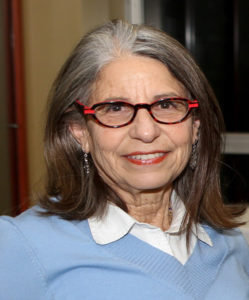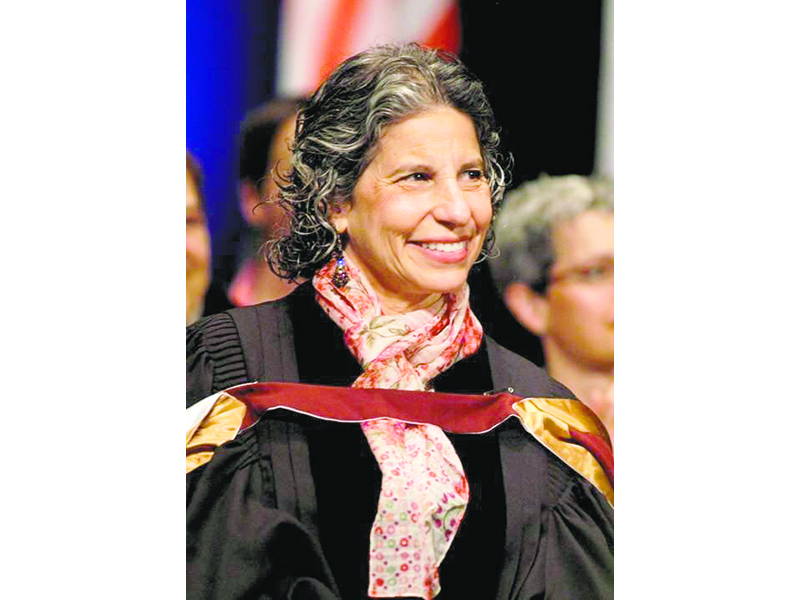In honour of Canada’s 150th birthday, The CJN presents 40 profiles of some of the most prominent Jewish Canadians throughout our history.
She was dubbed “Canada’s outstanding Orthodox feminist” by Professor Michael Brown. For Norma Baumel Joseph, being an Orthodox feminist is a natural state of affairs.
And she has put her philosophy into action. In 1990, she successfully helped lobby the federal government to pass a law that would protect Jewish women in need of a get, or Jewish divorce decree.
The historic amendment to the federal Divorce Act prevented men from using the get as leverage in civil proceedings. Joseph would go on to found the Coalition of Jewish Women for the Get. She also founded and led the International Committee for Agunah Rights and was a director of the International Committee for Women at the Kotel, a group dedicated to securing prayer privileges for women at the Western Wall.
Her teaching career began at Sir George Williams University, as it was then known, in 1975 as a part-time lecturer. Today, she is a professor of religions and cultures at Concordia University in Montreal, where she directs the women and religion specialization. She is also an associate of the Concordia Institute for Canadian Jewish Studies and of the university’s Azrieli Institute of Israel Studies.
She writes a regular column for The CJN.
Born in Brooklyn, N.Y., she married Rabbi Howard Joseph in 1965. He assumed the pulpit of Montreal’s Spanish and Portuguese Synagogue five years later. One of their sons, Joshua, is also a rabbi.
READ: THE CJN’S SPECIAL COVERAGE OF CANADA’S SESQUICENTENNIAL
Joseph received her B.A. from Brooklyn College and did graduate studies at the City University of New York before earning her doctorate in religion from Concordia University in 1995. The subject of her dissertation was women in the responsa of Rabbi Moses Feinstein.
She has appeared in two films: Half the Kingdom (1989) and Untying the Bonds of Jewish Divorce (1997).
Widely quoted when it comes to Jewish divorce issues, Joseph was the media’s go-to spokesperson in 2008 when Canada’s Supreme Court upheld the awarding of damages to a Montreal woman whose husband withheld a get from her for 15 years, despite an agreement between them.
She countered those who said the courts should not interfere in matters of religion. Courts are obligated to intervene in the “misuse of religion,” she stated after the ruling.
And she has flatly stated that Jewish divorce is not egalitarian. Only the man can initiate the get, and what little remedy exists for agunot – women denied a divorce and who cannot remarry religiously – such as coercion, is rarely used. As well, there are loopholes that benefit the husband if the woman refuses to accept the get.
As Joseph has seen it, the source of the problem for agunot is Jewish law, “and its solution can be found only in Jewish law.”

What does it mean to modern Orthodoxy to be inclusive of women? “Surely Jewish practice applies to women,” Joseph wrote for the modern Orthodox website, Edah, recently.
For one, there is no exemption for women from the many laws of kashrut or Shabbat. “Those who claim that women have only three mitzvoth – hallah, hadlaqat neirot (lighting candles) and niddah (menstrual separation) – do not know what they are talking about.”
“Women are ritually obligated in almost all of Jewish ritual,” according to Joseph. Citing Maimonides, she said women are exempted from only 14 of the 613 commandments.
“So what is the big complaint about? Even the exemptions have been mostly overridden today, as women have taken upon themselves the obligations of shofar, lulav and sukkah,” she wrote.
At a panel discussion in 2010, Joseph she didn’t like being told there was no such thing as an Orthodox feminist: “I’m no longer an oxymoron.”







